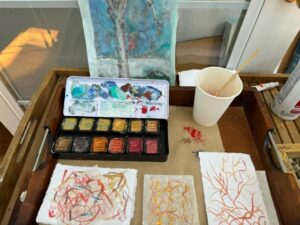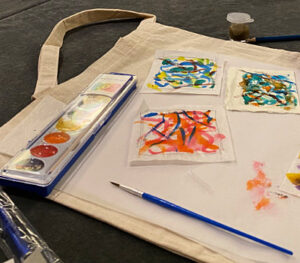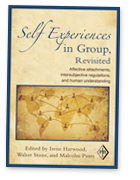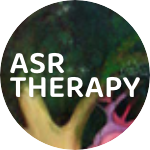Judy McLaughlin-Ryan MFT
Psychotherapy for individuals, couples, blended families, and groups, as well as attachment based psychodynamic therapy.
While addressing relationship issues and challenges, rebuilding bridges out of historical losses and or trauma, the psychotherapeutic process in collaborative.
Offering Individual Psychotherapy, Group Psychotherapy, Couples Counseling, Family Counseling, and Marital Counseling, and offer Group Psychotherapy. A Women’s Group for Post-Traumatic-stress disorder and Addiction, including process addictions, is currently offered.
This psychotherapy is psychodynamic in origin, with affect (mood) and state (body) regulation (balance), (ASR), as a focal point for rebuilding and/or building life supportive attachments. Secure and healthy attachments and/or relationships are a key factor in healing. The seemingly small nurturance and alterations in behaviors, cognitions, bodily reactions and responses, allows for a ‘drip line effect’ of change…similar to the plants and foliage that grows throughout our planet.
Continuing Education Courses
Additionally, I teach Continuing Education Courses to Licensed Marriage, Family Therapists and Licensed Social Workers, as well as Nurse Practitioners, on (PTSD) Post-Traumatic-Stress-Disorder, Complex Post-Traumatic -Stress -Disorder, Addictions, Eating Disorders, and Process Addictions.
Adding the Creative Artistic Process as an experience of mindfulness of the bodily responses to stress, with self-regulation as a goal.
CEU Offered:
Interactive Arts & Creativity
Addressing Regulation, Attachment & Affiliative Behavior while treating PTSD & ADDICTIONS. (all art supplies provided).
 This course will illustrate, discuss and describe micro activities to increase self-regulation awareness and application through art and creativity, that may be utilized when working with co-morbid disorders of PTSD, Complex Post Traumatic Stress Disorder, and Addictions. This course offers an expanded knowledge base concerning regulation and attachment issues. With a baseline of this course knowledge, the optimum goal is to integrate creativity to improve regulation and attachment. Attendees will experience hands on, watercolor creations on hungi paper, while interactively discussing its effects on attachment and regulation.
This course will illustrate, discuss and describe micro activities to increase self-regulation awareness and application through art and creativity, that may be utilized when working with co-morbid disorders of PTSD, Complex Post Traumatic Stress Disorder, and Addictions. This course offers an expanded knowledge base concerning regulation and attachment issues. With a baseline of this course knowledge, the optimum goal is to integrate creativity to improve regulation and attachment. Attendees will experience hands on, watercolor creations on hungi paper, while interactively discussing its effects on attachment and regulation.
5 Learning Objectives: As a result of this CEU participants will be able to:
- The participant will be able to list at least three key principles regarding attachment patterns that often need to be addressed during treatment phases for patients with PTSD, Complex PTSD, Addictions and comorbidity.
- Attendee will list 3 micro actions of ‘the small’ that contribute to an increased sense of restorative balance.
- Attendees will participate in art activities, listing three effects micro-actions have on the their regulation.
- Attendees will be able to identify one shift in mood, post engaging in group interactive experiences (increased affiliative behaviors).
What’s new …
Most recently I have expanded my practice as a CEU provider, by offering retreats addressing Restoration, Recovery, and Regulation. As a CEU provider for Nurse Practitioners, LMFT’s, and LCSW’s, the focus of regulation as it applies to professional life, creativity, health, fulfillment, and improved interpersonal relationships with self and others, is my focus.
I have also added creative experiences, such as painting with creating as the goal and conducted a Retreat for The Western Doctors, addressing Restoration and Recovery, as creativity and micro-experiences were addressed.
Restoration and Recovery Through Micro-Steps and ‘The Small’
 Judy recently conducted a retreat for Western Doctor’s In Recovery. During the retreat, watercolor on Hungi paper was taught as a mechanism for creativity and relaxation. Please inquire if you’d like information on upcoming retreats that are restorative in nature.
Judy recently conducted a retreat for Western Doctor’s In Recovery. During the retreat, watercolor on Hungi paper was taught as a mechanism for creativity and relaxation. Please inquire if you’d like information on upcoming retreats that are restorative in nature.
This is an example of some of the objectives the retreat offers:
- Attendee will list 3 micro actions of ‘the small’ that contribute to an increased sense of restorative balance within a 24-hour period.
- Attendees will participate in writing and art activities, over on 24-hour period, listing three effects micro-actions have on the quality of their program.
- Attendees will describe and discuss how micro-actions effect their relationship with emotional sobriety, and/or health, as applied to their daily program of recovery.
- Attendees will be able to identify two changes that occurred in mood, thought, physiology, a sense of belongingness, as a result of group micro-resting.
- Attendees will be able to identify one shift in mood, post engaging in group interactive experiences (increased affiliative behaviors).
Judy on LinkedIn
See Judy McLaughlin-Ryan’s latest postings on LinkedIn®
click here »
Video Excerpt
Form a presentation in July of 2011 for ESTSS
Watch it now »
Group Therapy
PTSD/Addiction Women’s Group in Westwood California.
This group offers a level of processing historical trauma as well as an opportunity to deepen individual and collective wounds that contribute to addictive disorders, such as co-dependency, eating disorders, gambling, chemical dependency, love addiction, process addictions.
Women’s Group for PTSD, Complex PTSD, Addictions, and Process Addictions.
This group meets on Thursday nights, in Westwood Village.
The focus of the group is on bridging the developmental gaps between any or all traumatic disruptive experiences over the lifespan, into a life based on today’s experience, vs. flooded with memory and/or the past. The group is both a supportive group and a process group. It is a longer term group. If you are interested in this dynamic group, please call 310-209-0740.
For more information on groups, click here »
Articles
Please view some of the articles that describe in detail my clinical views.
click here »
Resources
Further reading, websites, and books.
click here »
Online Courses
Continuing Education Courses on line are offered
click here »
Current offerings include:
PTSD 1
Course Description: Post-Traumatic-Stress-Disorders and Addiction Treatment:
Twelve-Step Groups/Clincial Groups, and Affect-State-Regulation
PTSD2
PTSD / Complex-Post-Traumatic-Stress Disorder / (CPTSD (mp2)
PTSD-Affect and State Regulation.
Self Experiences in Group, Revisited
 Affective Attachments, Intersubjective Regulations, and Human Understanding
Affective Attachments, Intersubjective Regulations, and Human Understanding
Edited by Irene Harwood, Walter Stone, and Malcolm Pines, Self Experiences in Group, Revisited is a completely revised and updated application of self-psychological and intersubjective perspectives to couples, family, and group work, incorporating many of these recent findings and theories of the past decade.
Part IV: Working with Trauma. McLaughlin-Ryan, Posttraumatic Stress Disorder and Addictive Disorders: The Effects of Group Interactions on Affect/State/Intimacy and Isolation.
In chapter 10 Judy McLaughlin-Ryan engages readers to learn about navigating in working with individuals suffering with ongoing severe trauma, addiction, isolation and destructive behavior. Through comprehensive review of the dysregulation of affects, problematic attachments, and understanding the neurobiology that these pained individuals share, she acquaints us with the effectiveness of utilizing both psychotherapy groups and the supportive daily structure of 12 step groups for those with PTSD and addictive disorders. Through her illustrative group examples, she demonstrates how persons can turn towards seeking out intimacy in groups instead of isolated destructive behavior.
